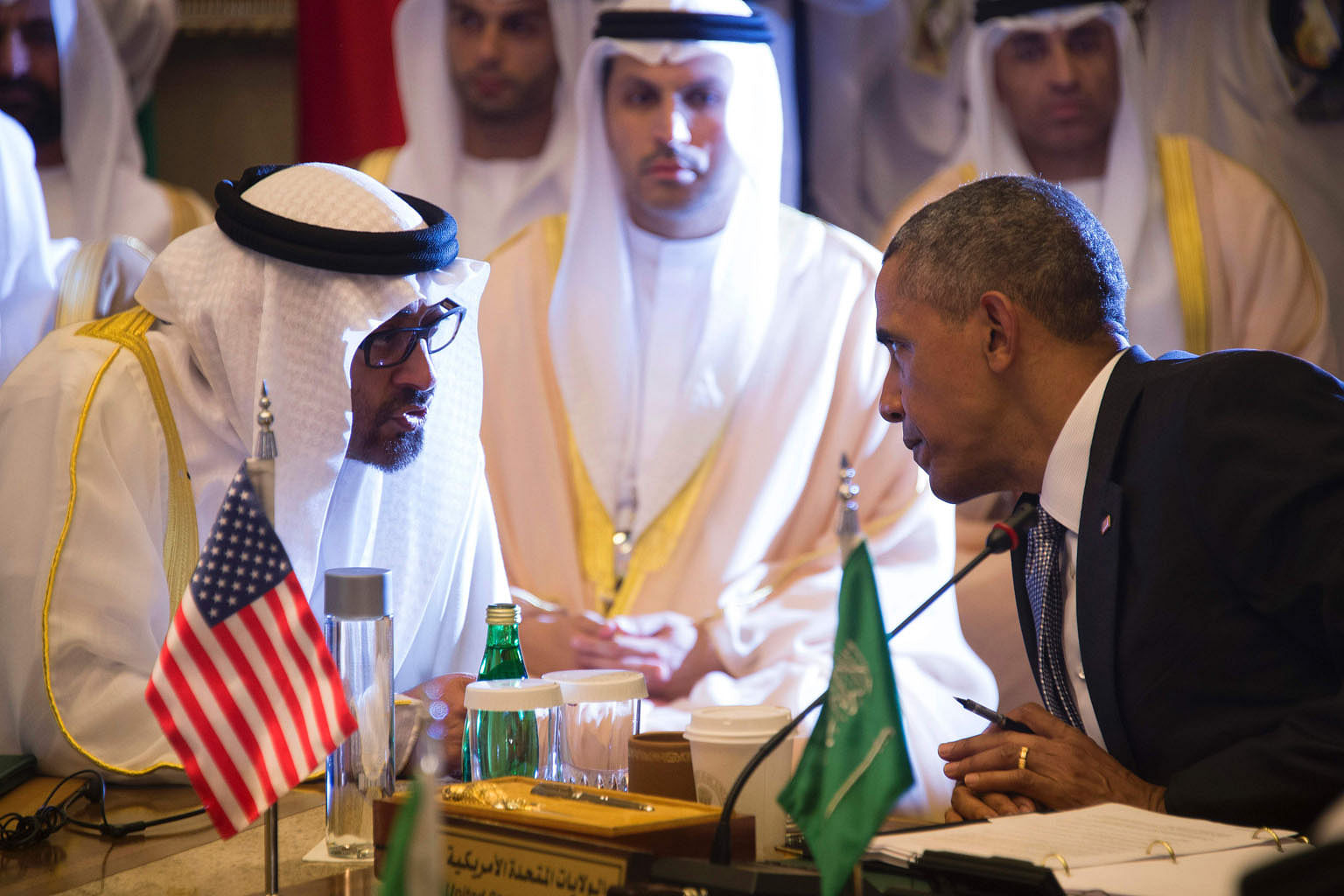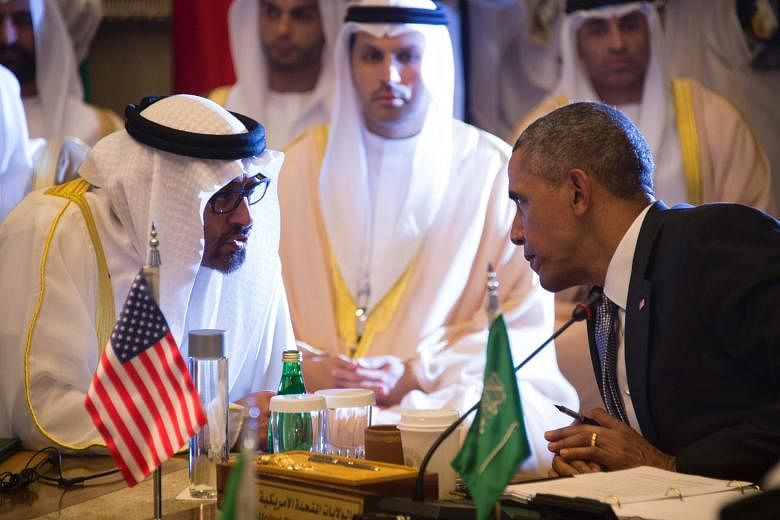US President Barack Obama visited Saudi Arabia this week to attend a meeting of Persian Gulf leaders, but he was unable to repair the US-Saudi alliance, which has reached its lowest point in decades.
Saudi rulers believe that Mr Obama has shifted US foreign policy to be more friendly towards Iran, especially after his administration expended considerable political capital to reach a nuclear deal with Teheran last summer. The President also reduced direct US involvement in the Middle East, resisting calls to intervene military in Syria and to send more US troops to Iraq. And Saudi leaders were particularly upset after he suggested in an interview with The Atlantic magazine that they should figure out ways to "share the neighbourhood" with Iran.
Despite Saudi anger and US public perception, Mr Obama has not fundamentally altered the "special relationship" between the kingdom and the United States. As he has preached a kind of tough love - telling the Saudis that he won't commit US military resources to reflexively support them against Iran - his administration has dramatically ramped up arms sales to the kingdom and other Gulf allies. Since 2010, the Obama administration has authorised a record US$60 billion (S$81 billion) in US military sales to Saudi Arabia. Since then, the administration has concluded deals for nearly US$48 billion in weapons sales - triple the US$16 billion in sales under the George W. Bush administration.
As Mr Obama ramps up weapons sales, American public anger against the kingdom is rising. Members of Congress are debating a Bill that would allow the Saudi leadership to be held responsible in US courts for the Sept 11, 2001 terrorist attacks (in which 15 of the 19 hijackers were Saudis) if victims' families can prove that any Saudi officials played a role in the attacks. In response, Saudi officials are threatening to sell off up to US$750 billion in US assets if the law is adopted.
To the Saudi leadership, the legislation is one more sign of its perceived abandonment by the US during Mr Obama's tenure. And in response, the kingdom is becoming more militarily aggressive, even as it struggles financially due to the global collapse in oil prices.
For decades, Saudi Arabia pursued a quiet, behind-the-scenes foreign policy that benefited from economic expansion fuelled by booming oil prices. The former Saudi King Abdullah, who died in January last year after two decades in power, presided over a proxy war with the kingdom's regional rival, Iran - a series of battles in Iraq, Syria, Yemen, Bahrain and Lebanon - that has shaped the Middle East since the Bush administration invaded Iraq in 2003. Saudi foreign policy was more cautious and less militarised than it is today. The kingdom relied on the US to guarantee its security, and worked through proxies and chequebook diplomacy to advance its interests.

Since he ascended to the throne after King Abdullah's death, King Salman has pursued a more aggressive foreign policy. Instead of relying on US military intervention and battling Iran through proxies, he and his advisers are overturning the old regional order. In March last year, the new monarch launched a war against Houthi rebels in Yemen - whom Saudi leaders accuse of being Iranian proxies - and appointed his 30-year-old son as defence minister (and deputy crown prince) to oversee the campaign. The war is popular with the Saudi public, despite the economic cost and the fact that civilian casualties are mounting in Yemen.
King Salman also increased Saudi support for Sunni rebels fighting Bashar Al-Assad's regime in Syria - another signal that the kingdom is no longer as reliant on the US and is taking a more assertive role to counter what it views as Iran's growing regional influence. King Salman and his inner circle are more willing to undertake military adventures and to directly confront Iran, even as Riyadh confronts internal problems.
Since the 1940s, the House of Saud has managed a tenuous pair of alliances: One as a political partner with Wahhabi clerics who vilify America and the West, and the other as an ally and major oil supplier to the US.
Saudi Arabia, which sits on one-fifth of the world's known oil reserves, is the second-largest foreign oil provider to the US. For decades, the kingdom used its leverage within the Organisation of Petroleum Exporting Countries to keep prices and production at levels that satisfied Washington. In return for ensuring a steady global supply of oil, successive US administrations supported the Saud family and provided military assistance whenever aggressive neighbours like Iraq threatened the kingdom. In 1990, when Saddam Hussein invaded neighbouring Kuwait, the US sent half a million troops to Saudi Arabia and used it as a base from which to drive the Iraqis out of Kuwait.
About 5,000 US troops remained in the kingdom at the Prince Sultan Air Base, and the high-tech command centre served as headquarters for US air strikes on Afghanistan in 2001. The American military presence on Saudi soil enraged Islamic radicals, who decried the Sauds' decision to allow "infidel" Western forces into Islam's birthplace. Osama bin Laden was among those who turned against the ruling family in 1990, and accused the House of Saud of straying from Islam.
The US bears a significant part of the blame for its dysfunctional relationship with Saudi Arabia. Many Washington policymakers value the stability of the Saud regime above all else and, for decades, they have been willing to turn a blind eye to the ruling family's excesses and its support for Wahhabi extremism. Until that changes, there will be more instability in the Middle East.
- Mohamad Bazzi is a journalism professor at New York University and a former Middle East bureau chief at Newsday.

